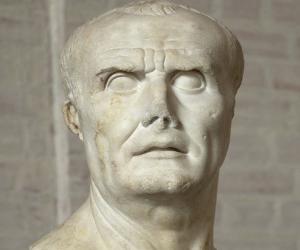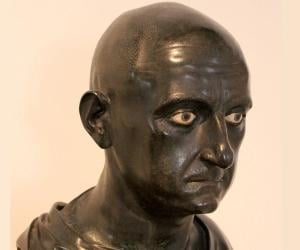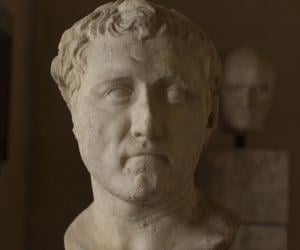Born In: Roman Empire
Pontius Pilate
Pontius Pilate was the fifth prefect of the Roman province of Judaea, Samaria, and Idumæa. He was appointed in his position by the Roman Emperor Tiberius. We know about his life from the four canonical gospels, Philo of Alexandria, Josephus, a brief mention by Tacitus, and an inscription known as the Pilate Stone, which authenticates his existence and ascertains his title as prefect. It is also mentioned that he was the judge at the trial of Jesus, and the leading man who ordered his crucifixion. However, the gospels mention that he tried saving Jesus from the execution and pleaded for his innocence in front of prominent Jewish leaders and Roman authorities. The gospels also say that he had no other option but to order Jesus’ execution as the crowd was getting unruly and things were getting out of his hands. In the mythological history, he is mentioned as a weak man who yielded to the Jewish establishment’s pressure in carrying out Jesus’ execution. Italian archeologist Dr. Antonio Frova, during a 1961 excavation in Caesarea Maritima, discovered a piece of limestone emblazoned with Pilate’s name in Latin, linking him to Emperor Tiberius’s reign, which validates his historical existence.









